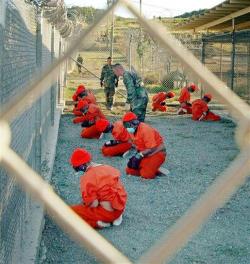Closing the prison at Guantanamo Bay has now become a priority
- Submitted by: admin
- North America
- Politics and Government
- 06 / 25 / 2007

Given that the facility has long been an international embarrassment for the United States, this is welcome news.
We have no complaint with imprisoning terrorists in maximum-security facilities. But most of the 375 prisoners still held at Guantanamo Bay have the amorphous designation as "detainees" - presumed dangerous, captured in military operations in Iraq and Afghanistan, but not convicted criminals or formal prisoners of war. Guantanamo Bay has been used since 2002 to keep such prisoners detained in a state of limbo.
Holding prisoners indefinitely in such a state is contrary to this country's most basic principles. They should either be classified as prisoners of war and treated as such, or charged as criminals and handled through military or civilian judicial processes depending on the circumstances of each particular case.
The facility and the indeterminate status of its inmates has been a source of increasing criticism for the administration at home and abroad. Various governments, including allies of the United States such as Britain, Saudi Arabia and Australia, which are home countries to some of the detainees, have urged that it be shut down. Human rights advocates have complained about conditions and duration of some incarcerations, and critics in Congress have threatened to withhold funding for the operation.
But one of the biggest problems with Guantanamo is that it has come to symbolize the worst complaints about the war - ill-defined, poorly managed and open-ended. That, and recent court decisions requiring that legal action be taken in regard to some of the prisoners, may be what has prompted the administration to now be willing to shut it down. Deputy Press Secretary Dana Perino told reporters Friday that the president has ordered action to be taken as soon as possible.
The administration is building a new high-security wing on a prison in Afghanistan that is expected to take some of those remaining, and others may be shifted to military prisons in the United States.
Some in the administration, notably Vice President Dick Cheney, oppose bringing such prisoners to U.S. soil because they are too dangerous.
But dangers need to be dealt with. They cannot simply be locked up and forgotten.
Comments